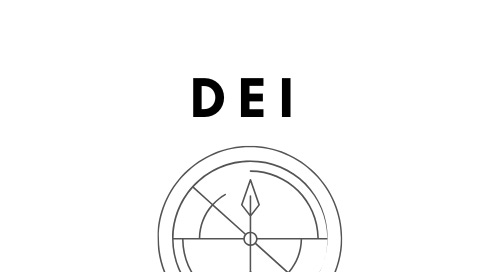DEI 101: Unconscious Bias/Microaggressions | Class Notes
What is Unconscious Bias?
Unconscious bias, also known as implicit bias, refers to the automatic attitudes and stereotypes we develop over time about people and groups. These biases are deeply ingrained and influence our actions without us realizing it.
Where Do Biases Come From?
Family and community influences
Life experiences
Media representation
Lack of exposure or understanding of different groups
Common Types of Bias
Bias isn’t limited to race, gender, or sexual orientation. It can also be based on:
Education level
Disability
Accent
Country of origin
Political affiliation
Occupation
Even something as seemingly trivial as fandoms!
How Bias Shows Up
Attribution Bias – We judge others differently based on our perspective of their actions.
Beauty Bias – Associating someone’s appearance with their abilities or personality.
Conformity Bias – Letting the opinions of a group shape our own perceptions.
Confirmation Bias – Searching for evidence to reinforce pre-existing beliefs.
Halo Effect – Assuming a person is entirely good because of one positive trait.
Horns Effect – Assuming a person is entirely bad because of one negative trait.
Microaggressions: The Everyday Impact of Bias
Microaggressions are verbal, non-verbal, or behavioral slights directed at marginalized groups. They often seem minor but accumulate over time, leading to frustration, resentment, and emotional harm.
Examples of Microaggressions
🗣️ “Your name is hard to pronounce. Can I just call you by your initials?”
💬 “Don’t worry, the neighborhood is gentrifying.”
🤨 Consistently confusing two coworkers of the same race.
👩🏽💻 “I’m sure this candidate will be great at math.” (Said about an Asian candidate.)
💡 Key Insight: Microaggressions often come from a place of ignorance, not malice, but the impact still matters.
The “I Am, But I’m Not…” Exercise
This activity, inspired by MIT, helps uncover biases and challenge stereotypes.
I Am...But I Am Not...A Black womanImpoverished or uneducatedA gay man“Dying to give you a makeover”A Muslim woman in a hijabOppressed within my communityA working motherUnable to take on leadership rolesA bald manOkay with you rubbing my head
🔥 Reflection Question: What’s something people assume about you that isn’t true?
How to Combat Bias & Microaggressions
1. Identify Your Biases
Take Harvard’s Project Implicit test to uncover hidden biases:
🔗
https://implicit.harvard.edu
Ask yourself:
Who makes me uncomfortable? Why?
When do I feel a shift in my behavior when speaking to others?
2. Get Educated
Read books and listen to podcasts on marginalized communities.
Take online courses about histories and experiences different from your own.
Engage with DEI-focused content and discussions.
3. Diversify Your Network
Get to know people from communities you have biases against.
Attend events and workshops that center diverse voices.
Reconnect with old acquaintances from different backgrounds.
4. Learn How to Address Bias in Conversations
Use the S.P.E.A.K. method:
Stop & breathe
Privacy—choose the right time & place
Empathy—assume positive intent but acknowledge impact
Ask—clarify what they meant
Kaizen—embrace change for the better
Real-World Scenarios: What Would You Do?
📌 Scenario 1:
A director tells a Latina employee she should pronounce her name with an "American accent" to make it easier for clients.
📌 Scenario 2:
A manager suggests a Black employee change her hairstyle to be “more professional” before a client meeting.
Discussion Questions:
Why might these comments be harmful?
What could have been said instead?
How would you support someone experiencing this?
Final Thoughts
Unconscious bias and microaggressions shape workplaces and interactions every day. The work isn’t just about recognizing bias—it’s about actively dismantling it. Small changes in awareness, education, and action can create more inclusive spaces for everyone.
🔎 Challenge for the Week:
Identify one bias you hold and take an intentional step to address it. Whether it’s engaging with a book, diversifying your news sources, or having a conversation, every step counts!



